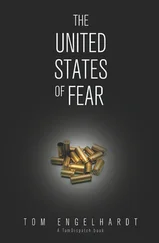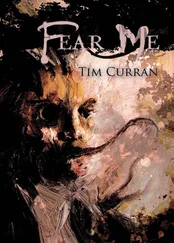Backstage, however, the masquerade began to unravel quickly. Mulligan, for his part, seemed to calm down a bit after Henry’s second appearance. In fact, afterward I saw him place his hand on Henry’s shoulder and say a few warm words. Henry forgot himself, smiled, and said “Thank you” in English. Eagan’s misgivings, however, gave him, and me, no rest. A question here (“Why doesn’t the fellow black up with us?”), a remark there (“Standoffish, isn’t he?”), and it became clear that the others would need to be included in the masquerade. The risks in this were obvious, but it was unavoidable. So I called a meeting the week after Henry’s second appearance, an extra hour before our usual arrival time. Henry would be a weekend attraction, exclusively, and this was a Tuesday.
At that meeting I told the basics of what I knew about Henry, and how I had encountered him. There was less surprise than I had anticipated, and more concern than I wanted. Burke asked about legal ramifications to our presenting a Negro, should the word somehow get out. I replied that we would be in a dubious situation if Henry’s identity were generally known.
“Would we be shut down?” Powell asked.
“I am not certain,” I replied, disingenuously. “But there is no question that we are running a risk, and I want to make sure that we are all agreed to continue as long as it seems sensible.”
“If things are so dubious as they stand,” Eagan said, “why are we taking this risk? Why don’t we get rid of him now, before the audience comes to expect it without fail?”
“He’s a great performer,” Powell said.
“Isn’t Mulligan more than enough of a banjo player?” Eagan said.
“That is not the question, Eagan,” I said. “We have been in a hole. We’ve been drowning in yodelers and glass harmonica players, and our audiences have been dwindling. I assume you’ve noticed. And I assume you noticed the audience’s reaction to Henry, and that you want the troupe to survive. .”
I was about to add that our receipts had risen by approximately 30 percent in the past week alone, and every sign indicated that the trend would continue. But before I managed to get this out, to my great surprise, Mulligan jumped in, addressing Eagan.
“Michael,” he said, “I will say this — the audiences love him. Even if there were something swampy about the law, the authorities cannot be unaware of his popularity. Barton certainly isn’t. We have paid off city officials before, if I am not mistaken.” I would not have expected Mulligan, of all of them, to rise in Henry’s defense.
“Yes, well, do we know anything about him?” Eagan said, reddening. “He might be a criminal. He might be contraband. .”
Both Powell and Mulligan jumped in with the obvious rejoinder that a fugitive from justice would hardly be likely to take refuge on a theater stage.
It came to a vote, and Mulligan led off with his strong support; Powell and Burke predictably followed him, and Eagan finally, and grudgingly, gave in, but not before leaving a muttered protest in his wake. “Mark my words: You are borrowing trouble.”
Afterward I took Mulligan aside. “John,” I said, “you surprised me in there.”
“I like the fellow,” he said. “And he is a real artist. I know you think I am fairly puffed-up on my own account, but someone who achieves his level of skill — one supports him. There is no competition there.”
“Well. .” I began.
“And Eagan is insufferable.”
“He is, isn’t he,” I said.
Mulligan was pulling at his mustache. “But let’s work up some type of number where we might both be featured. I would enjoy that.”
Surprise, again. “I think that would be grand.”
Absently, he repeated, “I’d like that very much.”
Henry, for his part, was not slow to bring up the matter of the promised increase in his fee. After a considerable bit of wrestling we agreed that he would receive eight dollars for his next week’s appearance. But he insisted that if he were to continue appearing he would have to receive ten dollars for each appearance.
“That is nearly what Mulligan makes,” I said, before I thought better of it. “I won’t hear of it.”
“Mulligan does seven performances per week.”
“Six,” I replied. “And he is the cofounder. And anyway what of it?”
“We agreed that I need to stop playing on the street. Someone might realize I’m the same person.” We had, indeed, already settled this point. “I can’t survive on eight dollars a week.”
“How much do you make on the street?” I said.
“Twenty dollars,” he said, perfectly straight-faced.
I laughed, returned his stare, and said, “You ought to make your living playing cards. You have a strong enough stomach for a bluff!” To his credit, he laughed at this, and I went on: “If we add you for a second weekend night, and I think we will, I will pay you seven dollars and fifty cents per evening, for the two evenings.”
He looked excited by this for a moment, before he remembered himself and summoned a doubtful look.
“You will be making fifteen dollars each week for two nights’ work,” I said, “instead of playing out on the street in all weather, with no guarantee of any income whatsoever.”
He hemmed and he hawed, and I thought he must have Scots blood in him somewhere, but finally he agreed.
Thus did Henry Sims become a member, or an associate, of the Virginia Harmonists. To our songs and jokes, our foolery and whimsy, Henry added an edge of something else, a wildness — a vein of madness, even, or so it appeared to some — wedded to a brilliantly honed musical ability that seemed to ride the very edge of control. He was addicted to improvisation, and every night he threw something different into the mix, and it kept us off balance in a way that brought the performances to life.
If for months before his advent, we had struggled to remain a solid and reliable offering among many similar offerings, we were now once again the sensation of the town.
I cannot say that Henry and I became friends, exactly, but our rehearsals at my apartments became increasingly cordial — so much so that I allowed myself to wonder, now and again, where he had in fact come from, and who he was. I did not know, aside from a chance remark here and there, much of anything about my colleagues’ innermost thoughts, or feelings — whether Mulligan felt lonely, or Burke speculated about the nature of the afterlife, or Powell kept letters from his first love. We agreed implicitly to keep our interactions confined to one plane only.
But in the weeks previous, Henry and I had shared such a sense of conspiratorial satisfaction that my ignorance about his background had begun to stand out in an odd relief. Although he was guarded in many ways, enigmatic, yet there was in him something that he kept alive, as if he had found some freedom for himself not only onstage but in life itself, and that spark brought out something in me, as well, part of which was an unaccustomed curiosity.
“Where did you learn to play music?” I asked. “Were your parents musicians?”
It was a fine afternoon, at my apartments, three weeks after his first appearance at the theater. I was already thinking of ways to broaden his participation in the program, and we had run through various scenarios. While rehearsing, we had played with a peculiar intensity and wordless communication; our understanding seemed perfect, even transcendent.
Why I chose that moment to ask him such a question, I am not sure. But I did.
He did not answer immediately, but finally he said, “No. Were yours?”
“My father played the violin,” I said, “and those are my best memories of him.”
“What’s wrong with your other memories?”
Читать дальше










